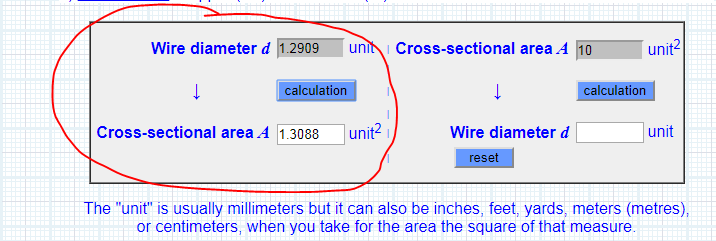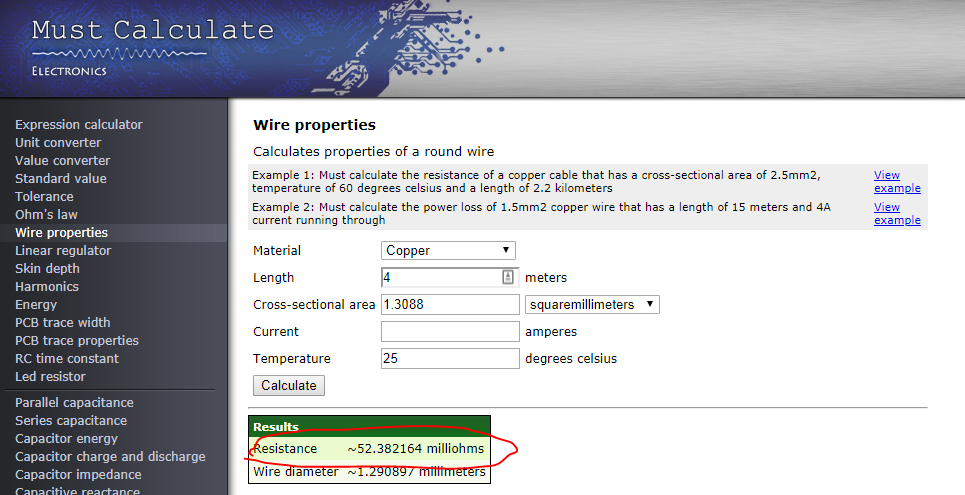................................................................................................
You can easily change the parameters and see how much of an impact it might create. I only see a few
milliohms difference between silver and copper until you start using very long or thick wires. The tiny amount of attenuation from using copper over silver would be minimal and most likely insignificant compared to the room acoustics. It's possible that placing a beer a few inches in one direction or another on a table might impact the sound more than changing from copper to silver wire material. I'd like to state for the record that I would love to volunteer myself for that experiment, provided the beer is fresh.











